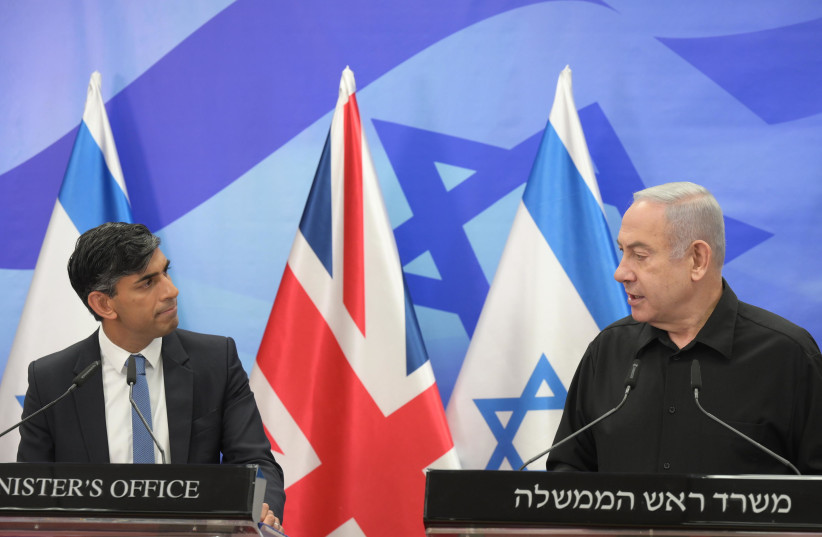The Israeli government’s latest decision to allow British independent fact finders to access the Israeli prisons where Hamas members are being detained and to assess whether torture has taken place is unprecedented.
Firstly, Israel has a longstanding distrust of foreign bodies, including members of UN commissions who want to charge the country with war crimes and human rights violations.
Secondly, the Israeli authorities are officially exposing British officers to facts and situations related to the country’s national security for the first time. In the past, it was only US generals who had the ability to exchange eye-to-eye opinions and reports with their Israeli counterparts.
Unprecedented British access to Israeli national security
The addition of the United Kingdom to this list of Israel’s confident national security discussants is the first time the Middle Eastern country has made such an intimate turn to one of its allies beyond the United States. The fact that of all the European countries, only the United Kingdom is invited to play that role holds its own importance.
The history of British intervention in the Middle East is long and mostly painful. Yet, since the termination of its mandate in the Middle East, the United Kingdom has managed little to retain influence over it as a former colonial power. The established State of Israel looked first at France and then to the United States for potential allies, whereas Egypt, occupying Gaza in the first years following the British departure and until 1967, looked towards the Soviet Union.

For years, the secret to the US’s success regarding the country’s intervention in the Middle East peace process has been the readiness of the US administrations to demonstrate empathy for Israel’s security concerns. Whereas UN Security Council Resolution 242, shortly after the Six Day War, speaks about the need for Israel to withdraw from territories it occupied but also for Israel’s existence in secure borders, countries around the world have put all the emphasis on the rhetoric about the withdrawal parameter.
All these years, after each round of violence, European countries, including the United Kingdom, have just repeated mantras and statements about what the final peace solution should look like. The US has been the only country whose approach is security-focused, with discussions between American and Israeli generals, the sending of security aid, and the support in the UN Security Council of Israel’s operations needed to cover the country’s security needs.
Since the current Gaza war started, the United Kingdom has made an equal security-led point by sending defensive equipment to Israel, such as drones that would patrol Gaza’s airspace and trace combatants. The country has also opted to abstain from UN Security Council resolutions calling for an immediate halt to the Israeli Gaza operations or for Palestinian UN membership.
Consistently and subtly, since the eruption of the war, British diplomacy has been sending Israel the clear message that, on cardinal national security matters, the latter can rely on the United Kingdom. Not surprisingly, the Israeli government thanked the British government for its help in thwarting the latest Iranian attack.
By showing readiness to also hear the Israeli security concerns, British diplomacy seems to try to reconsider UN Security Council Resolution 242 from a pragmatic perspective.
On one hand, London has not ceased calling for a Palestinian state, focusing on the resolution’s withdrawal component.
At the same time, as the only country apart from the US to have already unveiled a plan for post-war Gaza, the United Kingdom seems to understand that only by placing an emphasis on Israel’s national security needs can it have a role as a credible discussant in the future Middle East landscape. Not by accident, only recently, Israeli War Cabinet Minister Benny Gantz made a stop in London after his Washington trip, an unprecedented step for any Israeli politician visiting the States.
It is under this lens that the latest Israeli opening to the United Kingdom should be read. So far, the new British Middle East policy has paid off, building bridges of trust with the Israeli side. It remains to be seen if this will also be the case once the war comes to an end.
The writer is an assistant professor at Brunel University London and a former member of the Knesset Legal Department on international and constitutional issues.
